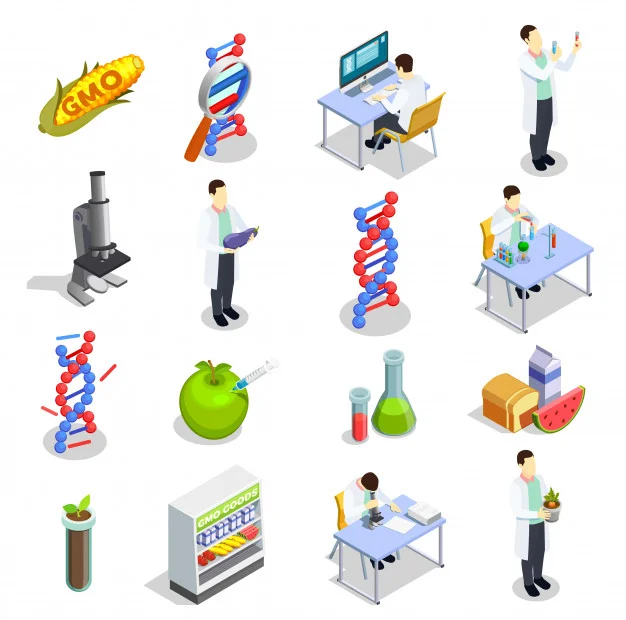
Food has a major role in human everyday life, acting as fuel and nourishment for bodies to carry out physical activities. The food industry is also a billion-dollar industry where manufacturers never stop innovating the type and flavour of food.
The science behind it needs graduates from food science in order to achieve the goal of food innovation. The field of Food Science has limitless potential waiting to be discovered! If you’re interested to venture into this field, then you must read on to find out what can it offer you!
Food Science - What will you study?
Food Science focuses food on every level, from the production process to packaging technology. Some examples of subjects commonly taught in a Food Science Degree are:
- Food Chemistry
- Human Nutrition
- Microbiology
- Food Biochemistry
- Food Product Development and Innovation
- Food Processing, Preservation and Packaging
- Food Safety and Quality Management
At some universities, you may be required to undergo compulsory industrial training or internships as part of the university’s degree programme. This is for you to obtain practical work experience, which can help you better understand and apply what you have learnt in university.
What are the popular fields in Food Science?
1. Food Chemistry
Food chemistry is the study of chemical processes and interactions of all biological and non-biological components of foods. The biological substances include such items as meat, poultry, lettuce, beer, and milk as examples.
It is similar to biochemistry in its main components such as carbohydrates, lipids, and protein, but it also includes areas such as water, vitamins, minerals, enzymes, food additives, flavours, and colours.
2. Food Technology
Food technology is the application of food science to the selection, preservation, processing, packaging, distribution, and use of safe food. This discipline also encompasses how products change under certain food processing techniques and ways either to enhance or to prevent them from happening.
3. Food Engineering
Food Engineering is the industrial process to manufacture food. Here, you will learn processes like canning, vacuum packing and various technology to mass-produce food products.
How long do you study to get a Food Science degree?
Generally, here are the duration of studying:
|
Programme |
Study Duration |
|
Diploma |
2 years |
|
Degree |
3-4 years |
|
Master |
1-2 years |
Why should you study Food Science?

Still unsure if food science is for you? Here are some reasons why you should consider taking up the course.
1. You love science (and food)
You’re a scientist at heart and enjoy figuring out how things work. In particular, you’re captivated by the science of food production and preparation, be it baking, boiling, frying or freezing.
Whether it’s creating exciting new food products or testing food for quality and safety, this field can be fascinating for those who have a love for the science of food.
2. You want to make processed food healthy and safe for consumption
Many people are highlighting the dangers of processed food to health, especially with an increasing amount of reports of tainted food being sold.
With so many foods being processed to the point of losing its nutritional value, food science can be a way to provide consumers with safe and healthy foods that will benefit them.
What skills do you need for a Food Science degree?
1. Teamwork skills
Learning to be a team player is a must. Teams exist everywhere in this field, be it in services or research departments. As a food science professional, you’ll need to participate and deliver your best with every task that comes your way.
2. Attention to details
You must make sure the food produced is healthy and safe to consume. This requires a high level of awareness and responsibility to ensure the health of consumers. Else, sickness like nausea or food poisoning is dangerous and threatening!
What are the entry requirements?
The academic entry requirements will also vary based on your choice of institution and level of study. Outlined below are the general academic entry requirements for each level of study:
1. Foundation
|
SPM / O-Level (or equivalent) |
5Bs including Mathematics/Additional Mathematics, Chemistry, Physics and Biology with |
2. Diploma
|
SPM / O-Level (or equivalent) |
5 credits including Bahasa Melayu, Mathematics and a Science subject with a pass in English |
3. Bachelor’s degree
|
STPM / A-Level |
BBB, ABC or AAC in Biology, Chemistry, Physics or Mathematics |
|
UEC |
B4 in Biology, Chemistry, Physics, Mathematics and Advanced Mathematics |
|
Australian Matriculation |
ATAR 80.0, including Biology, Chemistry, Physics or Mathematics |
|
Foundation in Science |
CGPA 3.0 in Biology, Chemistry, Physics or Mathematics |
|
Matriculation |
CGPA 3.0 in Biology, Chemistry, Physics or Mathematics |
In addition, a minimum of 5Bs including Mathematics/Additional Mathematics, Chemistry, Physics and Biology in SPM / O-Level (or equivalent) is typically required.
4. Master's degree
|
Bachelor’s degree or equivalent in relevant field |
CGPA 3.0 |
A certain amount of working experience may be required.
5. Doctorate
|
Master’s degree or equivalent in relevant field |
CGPA 3.0 |
|
Bachelor’s degree (for direct Bachelor to PhD students) |
CGPA 3.70 |
A certain amount of working experience may also be required.
What career can you have with a Food Science degree?

Here are some careers that you can seek upon graduating:
- Food scientist
- Food technologist
- Food product/process development specialist
- Food safety inspector
- Flavour chemist
- Quality assurance associate
- Raw materials procurement executive
What is the expected salary?
Based on Payscale, the average of a Food Scientist salary is $62,300. However, as you work, your experience grows and you will be able to venture into a management role which can offer a more attractive wage.
Top 10 universities in the world that offer Food Science courses

Image source: The Independent
The toughest part about studying Food science is deciding which pharmacy school to enrol in. This can be difficult for a wide variety of reasons, ranging from affording tuition and having the resources to relocate to another city or even country, to meeting your chosen school’s requirements.
Here is a list of world top 10 institutes to study for a Food Science programme:
1. University College London
University College London (UCL) is a public research university that was established in 1826 to open up education in England for the first time to students of any race, class or religion. It has close to 30,000 students in the university.
A few of the subjects that are covered include Divinity, Medicine, Law, Veterinary Medicine, Dental Surgery, Engineering, Science, Music, Arts, Business Administration, Education, Commerce and Humanities.
2. University of North Carolina
The University of North Carolina which also known as UNC, UNC-Chapel Hill, Chapel Hill, North Carolina, or simply Carolina, public research university located in Chapel Hill, North Carolina, United States. First enrolling students in 1795, it is one of several schools to claim the title of the oldest public university in the United States.
All undergraduates receive a liberal arts education and have the option to pursue a major within the professional schools of the university or within the College of Arts and Sciences from the time they obtain junior status.
3. Monash University
Established in 1958, Monash University is a widespread global university located in Melbourne with eight of its campuses paved across the world, including Malaysia and South Africa, with an additional centre in Prato, Italy.
At Monash University, it highly encourages the operation of conducting education and research in hopes of creating more research prospects and close-knitted community relationships.
4. University of Toronto
The University of Toronto (U of T, UToronto, or Toronto) is a public research university in Toronto, Ontario situated on the grounds that surround Queen's Park. It was founded by royal charter in 1827 as King's College, the first institution of higher learning in the colony of Upper Canada.
As a collegiate university, it comprises twelve colleges that differ in character and history, each retaining substantial autonomy on financial and institutional affairs. It has two satellite campuses located in Scarborough and Mississauga.
5. University of Manchester
The University of Manchester is a public research university located in Manchester, England. It was formed in 2004 as the result of a merger of the University of Manchester Institute of Science and Technology and the University of Manchester.
The University of Manchester has 25 Nobel laureates among its past and present students and staff, the third-highest number of any single university in the United Kingdom after Cambridge and Oxford. Four Nobel laureates are currently among its staff – more than any other British university.
6. University of Copenhagen
The University of Copenhagen is the oldest university and research university located in Denmark. It was founded in 1479 and became the second oldest institution for higher education in Scandinavia. There are four campuses which are all situated in and around Copenhagen.
The courses here are mostly taught in Danish, however, there are also courses that are offered in English and German. The university has had 39 Nobel laureates and counting affiliated as alumni, faculty members and researchers, and has produced one Turing Award recipient.
7. University of California, San Francisco
University California San Fransisco (UCSF) is the leading university exclusively focused on health. The University comprises top-ranked professional schools of dentistry, medicine, nursing, and pharmacy; as well as a physical therapy program and a graduate division with world-renowned programs in basic and social/populational sciences.
UCSF is driven by the idea that when the best research, the best teaching and the best patient care converge, we can deliver breakthroughs that help heal the world.
8. University of Milan
University of Milan, known as UniMi or Statale, is a higher education institution in Milan, Italy. It is one of the largest educational institutions in Europe, with about 60,000 students and a permanent teaching and research staff of about 2,000.
The University of Milan has nine schools and offers 134 undergraduate and graduate courses, 21 Doctoral Schools and 92 Specialization Schools.
9. University Sydney
The University of Sydney, founded in 1850, is Australia's first university and is regarded as one of its most prestigious. It was ranked in the top 100 universities in the world and is amongst the top four in the country. The University was founded in 1850 as an institution to suit the needs of New South Wales.
University of Sydney students and researchers come from all over the world and all backgrounds to prepare for a life of challenge and change. The University is unique among Australia's leading universities in the breadth of disciplines offered, providing wide opportunities for personal development and cross-disciplinary study that delivers unique insights and breakthroughs.
10. Ohio State University
The Ohio State University or usually refers to OSU is a public research university in Columbus, Ohio. OSU was originally known as the Ohio Agricultural and Mechanical College. OSU has since grown into the third-largest university campus in the United States.
OSU is considered to be one of America's Public Ivy universities, the top public research universities in the United States. OSU's main campus is located in Columbus, the university also operates a regional campus system with regional campuses, which located in Marion, Lima, Wooster, Mansfield, and Newark.





 +60173309581
+60173309581










